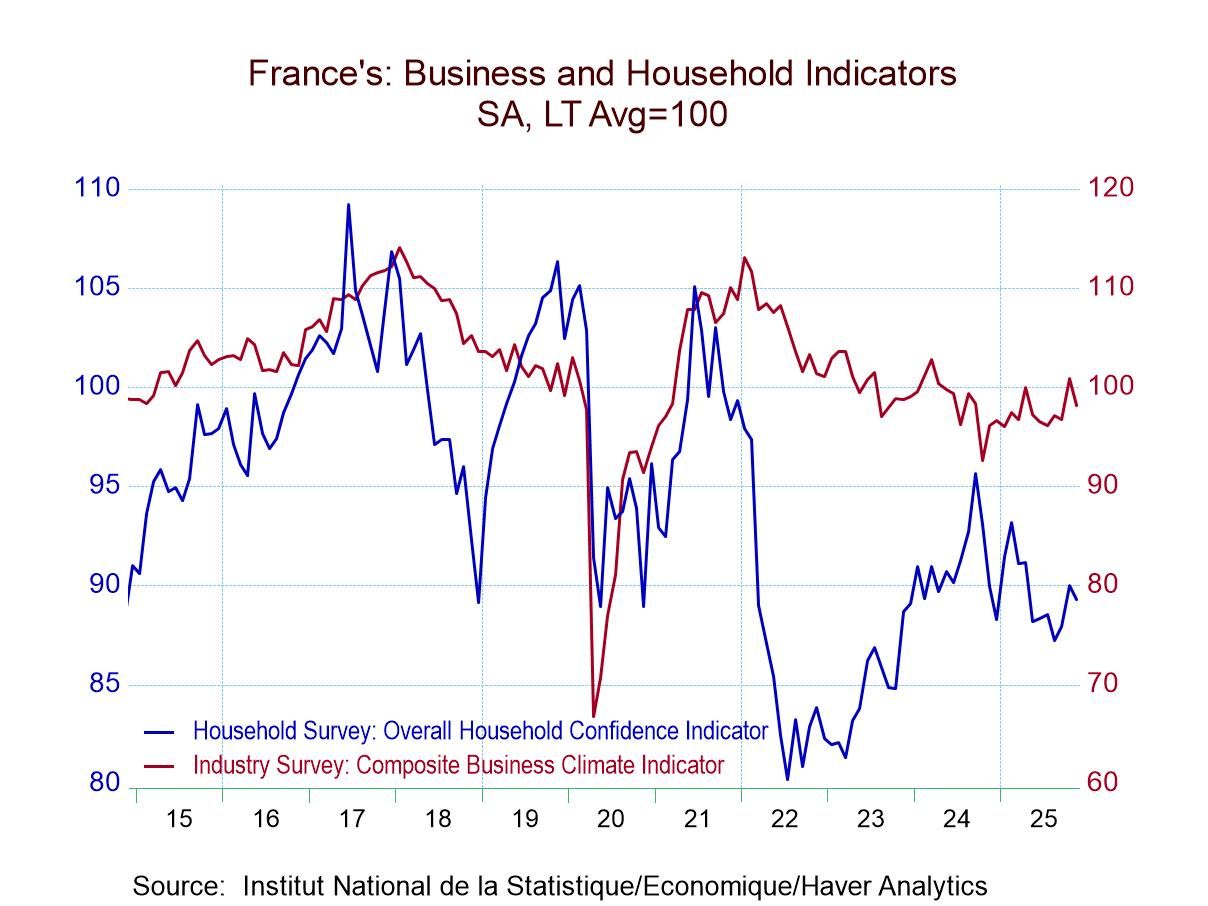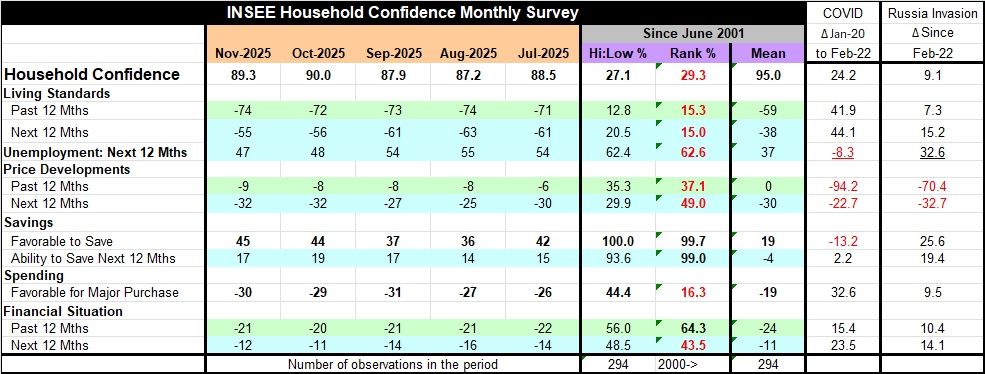French Household Confidence Erodes Slightly in November

The INSEE survey of household confidence in France eased in November after having seen some rebound in October. The chart shows that household confidence has generally been giving back ground over the past year; that contrasts to the business climate indicator that has been stable during this period, with a very slight uptrend.
Household confidence has a 29.3 percentile (rank) standing on data back to 2001, marking the level of confidence as a lower one-third phenomenon for France in November.
Living standards over the past 12 months had been relatively stable, posting a value of -74 in November, much the same as what we see over the earlier five months and translating into a ranked standing in its lower 15-percentile, a relatively weak result. The outlook for living standards over the next 12 months is at a diffusion value of -55; however, it is still at a relatively weak 15-percentile standing. The prospects for unemployment had diminished slightly over the last five months, but currently the reading has a 62.6 percentile standing. That's a rank standing above the 50th percentile, marking it as a concern about unemployment that's slightly higher than the median for the period.
Price developments in November yield a diffusion rating of -9, very little change compared to the previous four months and with the rank standing at its 37th percentile, basically suggesting that there was not much concern about inflation over the past 12 months. The next 12-month reading is at -32 in November, unchanged from October and slightly weaker than the previous three months; however, the standing is at its 49th percentile, which is essentially at its median.
The favorability to save, at a reading of 45 in November, had stepped up slightly over the past five months, while the ability to save over the next 12 months had also crept up very slightly. Each of these metrics has a very high ranked percentile standing in the 99th percentile. Favorability to save responses are generally strongly correlated with unfavourability to spend and we see that here again with the favorability to make major purchases at a -30 reading in November and having generally slipped from the previous five months and having fallen to a percentile standing in its 16.3 percentile, quite a weak situation.
The financial situation over the past 12 months had largely been unchanged at the level of the November reading; it has a 64.3 percentile standing, above its historic median. However, for the next 12 months the financial situation, while also having improved compared to its recent history, has a percentile standing only in its 43.5 percentile.
The INSEE household confidence survey for November remains weak and continues to show soft spots. There is little evidence of firming across the components, and the trend behavior is that this index has been slipping at a slow pace over about the last year. None of that seems to be changed as of November 2025.

Robert Brusca
AuthorMore in Author Profile »Robert A. Brusca is Chief Economist of Fact and Opinion Economics, a consulting firm he founded in Manhattan. He has been an economist on Wall Street for over 25 years. He has visited central banking and large institutional clients in over 30 countries in his career as an economist. Mr. Brusca was a Divisional Research Chief at the Federal Reserve Bank of NY (Chief of the International Financial markets Division), a Fed Watcher at Irving Trust and Chief Economist at Nikko Securities International. He is widely quoted and appears in various media. Mr. Brusca holds an MA and Ph.D. in economics from Michigan State University and a BA in Economics from the University of Michigan. His research pursues his strong interests in non aligned policy economics as well as international economics. FAO Economics’ research targets investors to assist them in making better investment decisions in stocks, bonds and in a variety of international assets. The company does not manage money and has no conflicts in giving economic advice.
More Economy in Brief
 Global| Feb 05 2026
Global| Feb 05 2026Charts of the Week: Balanced Policy, Resilient Data and AI Narratives
by:Andrew Cates






